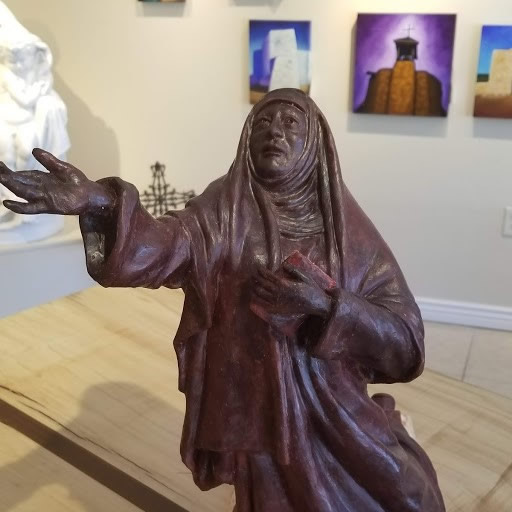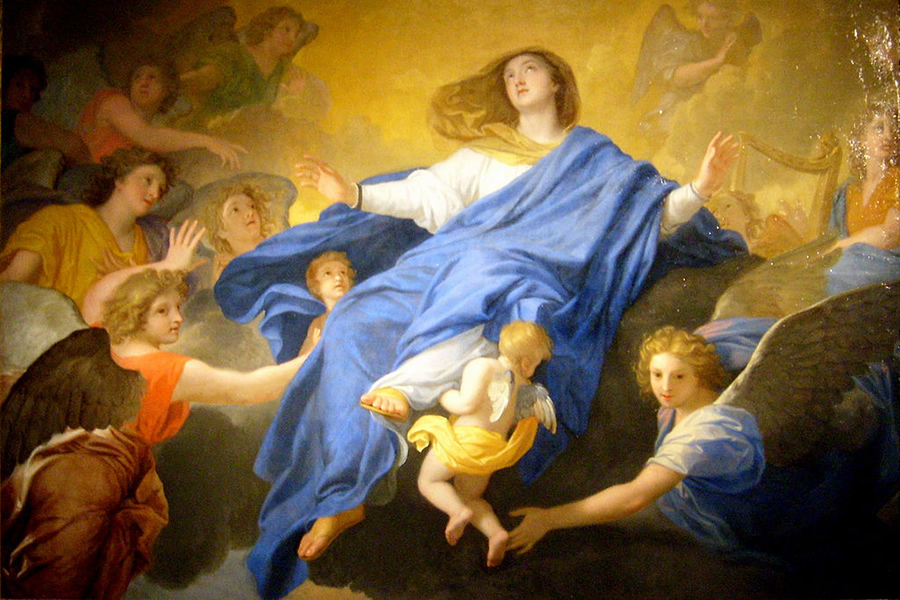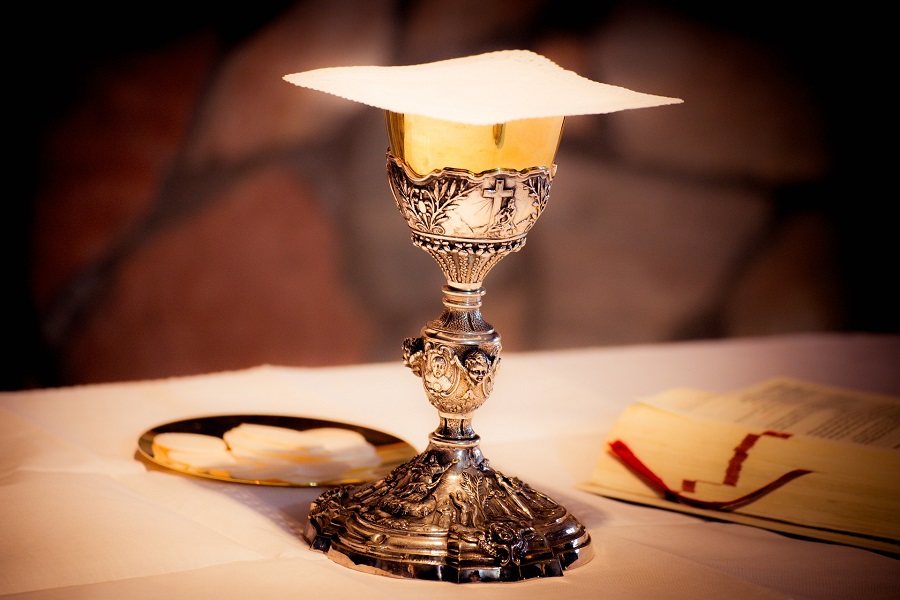Corpus Christi Blog
Response to Priest and Bishop Scandal
08-26-2018HomiliesFr. Chad KingMy brothers and sisters, during these past couple of weeks, as information about the failures of some priests and bishops has been revealed, my mind and heart as a Catholic has been a whirlwind of emotions, perhaps it has been for you also. But for me also as a priest, the devastating news has taken some time to process what I’ve been feeling in light of this renewed and new scandal in the Church. Today’s readings help to shed light on what emotions and thoughts I have had, maybe they will be of some help and encouragement to you.
READ MORESt. Monica Statue Coming Soon!
08-26-2018Weekly Reflection
This week, we celebrate the feast days of St. Monica on August 27 and her son,St. Augustine on August 28. St. Monica’s persistent prayers are credited for theconversion of her pagan husband and St. Augustine to the Catholic faith. To helpfoster a devotion to St. Monica in asking her intercession for loved ones who havefallen away from the faith, Fr. Chad has commissioned a statue of her that will beplaced in the vestibule of the church. The statue will depict St. Monica holding a Biblethat will have a slot for people to deposit the names of their loved ones on slips ofpaper.
READ MOREMass is memorial of THE Sacrifice
08-19-2018HomiliesFr. Chad KingAs I have shared the past 3 weeks, the Church has given us this series of 5 weeks to work our way through the great chapter of Eucharistic teaching, John chapter 6, today is the 4th of 5 weeks. For those who didn’t hear my homily, in the 1st week, which was 3 weeks ago, I talked about how at Mass we gather as community, as God’s people to worship Him, and what God brings about in us who are in the state of grace to receive Communion. The following week, 2 weeks ago, my homily reflected on how the Eucharist, which is the New Manna, is not a mere metaphor, as some non-Catholics can believe it to mean. And last week I shared that even though it can be hard to believe in the Eucharist, how in a time in Adoration, the Lord showed me that my own, and every person’s personal faith and understanding in the Eucharist is intrinsically tied to the Incarnation. Now, if you are now thinking that you missed out, and wish you were there, don’t worry, because I write out my homilies, all of my homilies are on our website, free of charge.
READ MORE
Great Inner Peace or Fleshpots?
08-19-2018Weekly ReflectionFr. Richard HeilmanMake no mistake about it, God wants you to be happy. Yes, that's right. And, not just some kind of superficial and fleeting happiness, but a deep and abiding happiness; an inner peace. This is the kind of happiness that is meant to fill that void in your life; to lift you up into that place of all meaning and purpose in your life. So, what does this void-filling happiness look like?
Fr. Robert Spitzer has done extensive research in this area. Fr. Spitzer writes,
READ MORE"The Greek Philosopher Aristotle (394-322 B.C.) observed that no person deliberately chooses to be unhappy. The purpose and end of man, Aristotle argued, was happiness - for happiness is self-evidently what all men seek and strive for ... it is what he directs all his powers towards. So, this universal quest for happiness defines humanness. 'Happiness,' Aristotle pointed out, 'is the only thing willed by man for its own sake. Everything else is willed for the sake of happiness.'"

The Assumption of the Virgin Mary: A Belief Since Apostolic Times
08-12-2018Weekly ReflectionFr. Clifford StevensThis article was taken from the July-August 1996 issue of Catholic Heritage and provided courtesy of Eternal Word Television Network at www.ewtn.com/library/answers/aofmary.htm.
The Assumption is the oldest feast day of Our Lady, but we don't know how it first came to be celebrated.
Its origin is lost in those days when Jerusalem was restored as a sacred city, at the time of the Roman Emperor Constantine (c. 285-337). By then it had been a pagan city for two centuries, ever since Emperor Hadrian (76-138) had leveled it around the year 135 and rebuilt it as <Aelia Capitolina> in honor of Jupiter.
For 200 years, every memory of Jesus was obliterated from the city, and the sites made holy by His life, death and Resurrection became pagan temples.
READ MOREThe Incarnation reveals the Eucharist
08-12-2018HomiliesFr. Chad KingIn high school, I was active in my Catholic faith, I went to Mass every Sunday and was involved in the youth group. And I had heard many times and knew that the Church taught the Eucharist is not ordinary bread but the bread and wine is actually transformed into the Body and Blood of Christ. I knew what the Church taught, but I didn’t really understand how, and I wanted to have a deeper understanding. What about you, raise your hand if you too have known what the Church teaches about the Eucharist, but at some time in your life have wondered how, or had a hard time accepting or believing it?
READ MOREEucharist is the New Manna
08-05-2018HomiliesFr. Chad KingToday we continue with week 2 of 5 on the great Eucharistic chapter, John 6. You may know that there are 2 main interpretations of these such important verses of John 6. One, like many Protestants do, can interpret them as metaphoric- so that the ‘bread of life’ is symbolic for belief or faith in Jesus. In this view, Jesus means the term ‘bread of life’ to be a metaphor like how Jesus says that He is the Gate, or He is the vine, you are the branches. Or the second way to interpret these verses in John 6, is as Catholics do, can interpret them as sacramental- meaning that it is not a metaphor, but that Jesus actually and literally means what he says and that what he says is truly what it is. After reading our Gospel from today, and from my own experience and faith, I have to admit that the metaphoric interpretation is right! …
READ MORE
From the treatise On the Mysteries
08-05-2018Weekly ReflectionSaint AmbroseThe sacrament that you receive is effected by the words of Christ.
We see that grace can accomplish more than nature, yet so far we have been considering instances of what grace can do through a prophet's blessing. If the blessing of a human being had power even to change nature, what do we say of God's action in the consecration itself, in which the very words of the Lord and Savior are effective? If the words of Elijah had power even to bring down fire from heaven, will not the words of Christ have power to change the natures of the elements? You have read that in the creation of the whole world he spoke and they came to be; he commanded and they were created. If Christ could by speaking create out of nothing what did not yet exist, can we say that his words are unable to change existing things into something they previously were not? It is no lesser feat to create new natures for things than to change their existing natures.
READ MORE